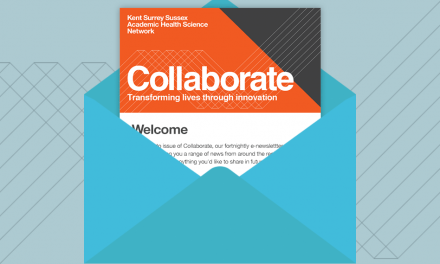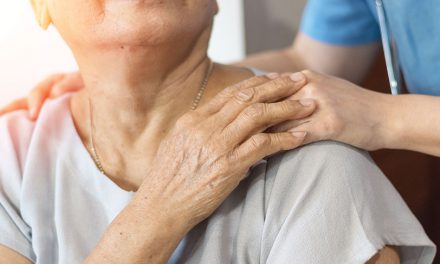Kent Surrey Sussex Patient Safety Collaborative was delighted to hold the first meeting of its Kent Surrey Sussex Care Home Safety Network on July 8th. We had fantastic representation from care homes, the NHS and local authorities across the three counties. At some points, we had more than 90 people joining the call.
We had the opportunity to tell people about our two safety improvement programmes currently working with care homes, Managing Deterioration and Medicines Safety.
You can see more detail on all that was discussed at the event below, including details of a talk from Dr Ciro della Monica from the Sleep Research Centre at the University of Surrey about the care home focussed research being carried out there.
It was great to see so many of you at the first meeting of our network. We would love to hear from you about what is important to you and what you would like us to cover at future events. The network is a great forum to share experiences, best practice, learning and celebrate all our achievements so please let us know if you have any stories, case studies and experiences you would like share. Please spread the word about our network. The KSS Patient Safety Collaborative team are looking forward to seeing you all in the Autumn.
The next Kent Surrey Sussex Care Home Safety Network meeting will be held on October 7th at 2pm. Please contact kerry.dudley5@nhs.net or sean.farran@nhs.net if you would like to be added to the circulation list.
Managing Deterioration
Jo Wookey and Kerry Dudley explained that the Managing Deterioration programme had spent much of the last 18 months supporting the COVID-19 response. More recently, however, they have been busy relaunching the programme in non-acute settings. They have been ‘virtually’ out and about meeting colleagues from commissioning, ambulance service, community teams and primary care as well as delivering Restore2 training across adult social care settings.
Their aim is to support people to recognise physical deterioration as soon as possible and get the right support at the right time by sharing a common language across services. The tools in Restore2 help carers, support staff and clinical teams recognise soft signs, take observations, respond and escalate appropriately. They are providing free weekly Restore2 training which you can register for at the link below.
Jo and Kerry would love to come to events including local teaching sessions and conferences to talk about Restore2 and NEWS2. If you would like to know more, please contact Kerry at kerry.dudley5@nhs.net
Medicines Safety Improvement Programme
Lisa Devine and Sean Farran spoke about the Medicines Safety Improvement Programme, which has a specific aim to reduce medicine administration errors in care homes. After a review in 2018 estimated there were more than 90 million medication errors in care homes each year, this national programme was set up to identify which approaches to reducing errors would be most effective and useful for care homes.
Their priority this year is to work with homes to “test” four change ideas
- Safety huddles
- Learning from incidents
- Managing interruptions
- 3-way comms (between care home, prescriber, & dispensing pharmacy)
They are looking for volunteers to identify potential problem areas in relation to their drug administration, test out small changes and carry out ongoing measurement of the impact. They will support homes throughout the process, providing training if necessary. There is lots of flexibility for homes to identify their own priority areas and possible interventions – as long as they include one or more of the four approaches above. Similar projects are going on across the country that will feed into a national report next year. If you would like to find out more, you can contact Sean at sean.farran@nhs.net
Breakout sessions
There were two breakout sessions, one about how the network should operate and one about the use of champions in care homes.
In the first, there was general agreement that the network was useful. People appreciated any opportunity to learn and collaborate, especially with colleagues from different organisations and geographical areas. It was pointed out that training is particularly valuable for people working in care homes and we’ll be very clear if we plan to deliver training via the network in the future or share other training resources. The breadth of membership and coverage over three counties was appreciated as it ensured all the different parties offering support to homes could be included. There were different views about the best frequency for the meetings, ranging from every two months to annual. In the end, we have settled on 3-4 per year, depending on the feedback we receive as the network develops.
In the second breakout session, we heard about some of the excellent work champions are currently doing in homes in areas ranging from hydration to digital inclusion. As well as providing professional development for individual members of staff, champions often provide a visible point of contact for external people in relation to their particular area of expertise. We also noted some of the challenges. It became clear that different homes have different approaches to remuneration and support for champions and, in some places, the high turnover of staff makes it difficult to keep up with training them.
Sleep Research Centre
We were also excited to hear from Dr Ciro della Monica from the Sleep Research Centre at the University of Surrey about the care home focussed research being carried out there. Having been told by care home staff that it would be useful to have technology to alert staff when a resident gets out of bed, Professor Dirk-Jan Dijk and his team are working to test technology to support the management and monitoring of nocturnal sleep disturbances in care home residents. During the presentation he stressed the importance of good sleep and circadian rhythms, highlighting the risks associated with disturbances, such as increased risk of falls, daytime sleepiness and distress for residents, staff and families. If you would like more information about the study, please contact Dr Ciro della Monica at c.dellamonica@surrey.ac.uk





